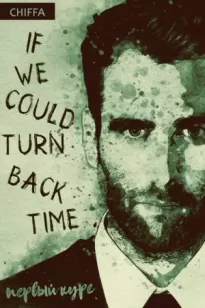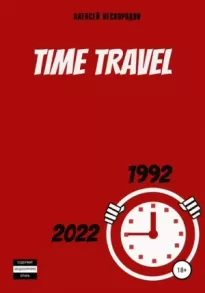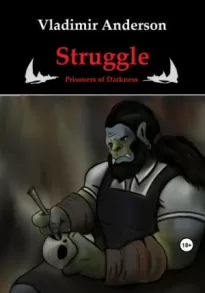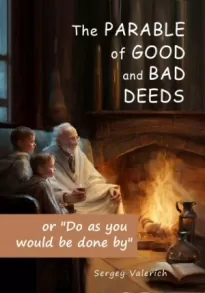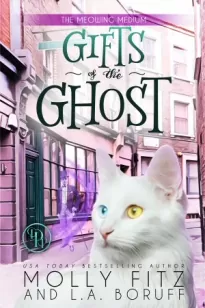TWICE IN TIME
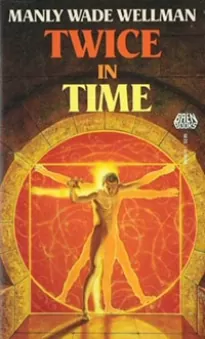
- Автор: Мэнли Веллман
- Жанр: Фантастика
Читать книгу "TWICE IN TIME"
CHAPTER III Pattern of the Future
Anne Poins Genelle was at the door, smiling from her hood.
"I am no soothsayer," said Nostradame. "You are the last person I thought to see."
"Because I am here on your concern. Your second sight is for others—not yourself." He opened the door for her to come in. "I am thought to be in my bed, but a cook in Lady Olande's kitchen is my trusty friend, and I left by the back door. Messire, my head has rung and whirled all this day with the things you told me."
"About days to come?"
"Aye, that. How think you you manage? Are you there indeed, in a time unborn?"
They sat, and he frowned over her question.
"More than anything, it is this: I move, by some great power, past a border or fringe. My sight and hearing are not clear. I see as one is said to see dead ghosts!"
"For example," said Anne, pushing back her hood, "did you make one of the company at the joust where the king died—where he will die, twelve years hence? Did none look at you?"
He shook his head. "Indeed, had I been visible, would any have eyes for me, when they saw their sovereign lord so sadly stricken?"
"Then you do not know."
"I cannot know. Those moments are full of wonder and dread. I speak to none, and none speaks to me."
"Sir," she said, "how if you had a comrade in those moments? One you can know and trust?" She was eager and shy in the same mood. But again he shook his head.
"I have not dared tell any, save only you."
"Then take me for your fellow—into the times to come."
It was his turn to be mystified.
"How that, child? I have told you how difficult and strange is the ancient ceremony—"
"Could not two perform it as well as one—better? Think!" Now she was bold, insistent. "It is an exploration more wondrous than any in history—more than Marco Polo, more than John Mandeville, than Christopher Columbus himself. Have you read the poems of Dante?"
"Aye, that. He saw amazements in hell and heaven, were he to be believed. But he was guided by Virgil."
"They were friends together. Two may prosper where one dare only linger on the threshold," she rose. "Come."
She led him to the study, as if it were her study and he was the guest. There Nostradame, converted to the spirit of her wish, rummaged in the closet and found for her another brass tripod stool like his, and a figured robe which he had discarded for its tatters a year before. From a laurel branch in a corner he cut a forked stick and showed her how to hold it.
"Now," he said.
They sat facing each other across the herb-fuming basin. He showed her how to moisten the fringe of the robe. Leaning across, he blew out the taper on the desk. They sat in silence darkness.
"I see light," she whispered, "or is it my fancy—"
"Hush," he bade her, his own eyes fixed on the faint glow that betokened the gathering of the mist.
For once his hands did not tremble, he did not feel the touch of fear. He would have glanced at Anne to see if she, too, faced the adventure with courage, but feared to break the spell. Through the haze came strange noises, a rhythmic clatter of metal and something like a deep, long shout, but also with something of metal in it, like the blast of a great horn. Would this glimpse grant the solution to that two-tongued paradox,
He saw a platform, lighted brilliantly but artificially, for it was distantly walled and loftily roofed, a great shed that would house an army. To either side of where he seemed to stand ran a strange metal affair the purpose of which he could not guess— parallel bars of bright iron or steel, in pairs and running into dark arched tunnels at a distance. Each pair of bars was supported upon a series of stout timbers, set crosswise and close together. And foggy figures began to make themselves clear, moving onto the platform opposite him, amid a jabber of many voices, shrill and excited and with no joyous note to them.
"Children," said Anne's soft voice beside him. "See to them, herded like cattle. Are they prisoners?"
Her voice helped in some way to clarify the scene. They were indeed children, dressed in the outlandish fashion that Nostradame had learned to recognize as of the far future. They huddled and stared with the blank woeful faces of youth in misery. There were adults, too—two gray-clad women with red crosses on their arms and in the fronts of their caps, and some men in brown, who moved and spoke with authority.
To one side, a woman hugged and kissed two of the smallest and urged them into the group. The children were mounting by steps into a series of long structures with glass windows, structures that stood not upon foundations but upon round wheels that fitted their hollowed rims to the parallel bars of metal.
"Prisoners?" echoed Nostradame. "No, their mothers urge them forward, but this is a sad thing. They weep the poor little ones, and their parents withal."
"Surely the brown-clad men are soldiers. They wear weapons at their belts," said Anne. "It is war, and the children are somehow being taken to safety. Heavens mercy, look to the little girl! She runs, weeping."
A child of six had scampered away along the platform, for the moment overlooked by those in charge. Impulsively Anne moved forward, and Nostradame saw her meet the child, not as a watcher form another time, but as an actor in the scene itself. Anne caught the little fugitive in her arms, and spoke insistently, soothingly, tenderly. The girl answered her back, and was comforted, and turned back to join the group. The children were herded aboard the wheeled structures, and some of the adults with them. There was another deep horn-blast, a rush of smoke from somewhere, and the laden train moved away on the tracks. Then Nostradame and Anne were sitting in the dark, the vision gone from them.
"Ah," sighed Anne, as Nostradame rekindled the light. "She spoke another language than I, but she trusted me and lost her fear."
"I heard her speech, and I know some words of it," replied Nostradame. "It was English, but not like the English of our time. She called you 'angel'—she thought you a friend come to her from heaven." Thoughtfully he stroked his bearded chin. "A friend from heaven you are, Anne. To that poor youngling, and to me."
Sitting at his desk, he chose a pen. "I must set it down. There will be a woeful war threatening the islands of England, and the children must be sent to the country in those huge cars, lest the destruction of the cities overwhelm them."
Quickly he wrote:
Within the Isles the children are transported,
The most of them despairing and forlorn,
Upon the soil their lives will be supported,
While hope shall flee… .
"But I was there with them, among them," said Anne. "I spoke to the child, touched her. You have not told me of doing that."
"Because I have never done it," replied Nostradame, pausing in his rhyme. "I have been frightened."
"As I was not."
"As you were not. Child," and he laid down the pen, "you bring me greatness and open new gates of the world to come. How if we try again, and both walk and speak in that strangeness?"
"Do it," she begged. "Here, at once."
"Child—" began Nostradame again.
"Must you call me that? Not that you mean harm, but have I not proven myself a woman grown?"
"Far more than that," he agreed gravely. "As the little English one named you, you are an angel proven. But never have I sought the moment of sight twice in a single sitting. You cannot guess the horrors shown me. Wars, the perishing of races, prisoners burned and drowned, rains of fire from heaven—"
"But if we can walk there as well as look there? If we ease an ill, prevent a death, comfort a sorrow?"
"How, in this present time, change a future one?"
"I did it," she reminded him stubbornly. "You saw. The little girl ran, perhaps toward danger. I met her, persuaded her to turn back. A small matter? But next time it may be a great matter. Come with me, Michel de Nostradame. Who can say the future is as unchangeable as was the past? Not I, not you—come!"
He bowed his agreement, and they sought their tripods again. Darkness, silence… .
The mist cleared to a scene gorgeous and exotic. The two of them saw, as it were, from the corner of a great open porch of a public hall or palace. Beyond was a square, and beyond that lifted domes and minarets.
"The infidel East?" Anne suggested.
"I think not. Though I never saw Russia, this I know to be their way of architecture. But look! Soldiers—from the west, and come as conquerors."
The streets were full of them, hard-faced, ready-looking veterans, with long guns that bore stabbing irons fixed to their muzzles. In disciplined ranks and details they ranged the curbs and cowed the staring, thronging townfolks.
Closer, on the steps of the porch itself, gathered a group of men who by the glitter and decoration of their uniforms were surely the high officers of this stranger army. One of them, burly and arrogant, stood listening to a civilian of the town, probably an official, whose high cheek-bones and deep, brilliant eyes showed him to be of the true Russian blood. They conversed, and Nostradame and Anne caught no words but tones of voices; the official was pleading, the foreign general disdainfully telling him to wait.
"I know these invaders, and what they do here," muttered Nostradame. "Terms must be made with the master of Europe—aye, here he swaggers now."
"I thought they were speaking French," suggested Anne. "This master of Europe of whom you tell is a Frenchman, perhaps?"
"Not he," and Nostradame shook his head. "A foreigner of poor descent, he rises to rule all of Western Europe by might, and now he moves to swallow Russia also. See to him."
A strutting figure approached, neither tall, graceful nor very dignified. He wore a uniform less gaudy than the simplest of the aides who followed at a respectful distance, but he would have dominated the scene had he been in rags. Nor was it his nobility, for he had none; every motion, every feature, bespoke a greed and ruthlessness for power that bristled from him like an aura.
This master of Europe stood commandingly before the Russian official, who bowed timidly and spoke again. Into his speech cut the master's curt replies, sweeping aside suggestions and setting his own terms, with no hint of wishing to hear arguments or appeals. Quickly, unfeelingly, the interview was completed. The pleader moved fearfully away, and the master waved for his lieutenants to follow him. As he entered the building arrogant and assured, he uncovered his head. A lock of hair fell across his brow, dark against the pale skin. His face was set tensely, his eyes gleamed like battle lanterns on a ship's bulwark.
"He is evil," said Anne.
"And all Europe of his day fears him and his plan to rule the world."
"How if we prevent this swaggerer from realizing his dream?"
"Impossible!" exclaimed Nostradame.
Anne glanced at the evening sky, gray and dull. "Surely it is late in the year, with cold weather at hand. And this, you say, is Russia, the land of hard winters. Even if invaders drive back Russian armies, must not they in turn retreat from Russian snows?"
"The master of Europe plans to shelter in this captured town."
"But if it is not left to shelter him? If it be destroyed about him—what, you do not see how? Come, come!"
She moved to and through a great open window that extended from floor to ceiling. Inside was a meeting-chamber, and around a table were crowded the chiefs of invasion, listening while their master harangued them. His shrill commands and statements were emphasized with full-armed gestures and thumpings upon a great map unrolled. The scene was lighted by lamps hung in brackets along the walls, and at one place stood a tall basket full of crumpled and torn paper scraps.
"Thus we deprive the invader of his shelter against the cold," said Anne, and put her hand to the nearest lamp. "Into the basket—"
It did not move. It did not even tremble, though she tugged and struggled.
"Am I then only a shadow?" she demanded over her shoulder. "But the little English girl—"
"Wiser are children than their elders, and clearer-sighted," said Nostradame. "We waste our time here."

